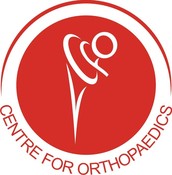|
|

|
« Back
Researchers Investing Common Link Between Chronic Itch and Chronic Pain
|
Posted on: 09/13/2007
|
Chronic itch can be just as unpleasant and difficult to live with as is chronic pain and it has many similarities to chronic pain. There is ongoing research to determine the causes of chronic itching, what exactly it has in common with pain, and how best to treat it.
In one study of patients who were undergoing dialysis, researchers found that of the 18,000 patients, there was a 17 percent higher mortality risk among those who experienced a chronic itch, or pruritis. Another large study of 18,770 subjects found that more than 8 percent of them complained of chronic itching and that this chronic itching was also associated with poorer overall health.
In trying to understand the mechanism of chronic itch, researchers have found that although pain can go deep into the body, itching remains on the skin or in some areas like the mouth, throat, etc. What they also found was that while chronic pain can be caused by a sensitization of nerve endings, so may chronic itching. An interesting finding from recent studies showed that subjects who experience chronic itch react differently to repetitive painful stimuli than do subjects who do not have chronic itching. Those with the itching felt stimuli like electrical current, heat, and scratching pain as itching, while those without chronic pain found that such stimulation helped ease an itch. Therefore, those without chronic itch would ease their itching by scratching, while those with chronic itch would just aggravate the sensation, causing it to worsen.
When studying neuropathic itch, or itch that follows a nerve pathway, it was found that the neuropathic itch was similar to neuropathic pain. This meant the itching also involved a burning and/or stinging sensation, as well as a prickly type of feeling. This is seen in 40 percent of patients who have had shingles and developed post herpetic neuralgia, a burning pain that continues along the rash area of shingles after the shingles lesions have healed.
Chronic itching could also be caused by interruptions in the transmissions between the body and the brain. People who take opioids, controlled medications usually prescribed for pain, or other medications for pain, could experience a chronic itch as a side effect.
Unfortunately, by not clearly understanding what causes chronic itching, treatment may not be effective. Right now, there are no medications that are specifically for treating itching, but there are medications that can help some people with certain types of itching. For example, some people get relief from anti-depressants and/or anti-seizure medications. Others get some relief from topical (creams or ointments) medications, which could be local anesthetics or anti-inflammatories. Interestingly, aspirin in a topical form may provide relief, but not aspirin in a pill form. Some research is being done with a type of medication that can work against the itching caused by the opioid medications, called opioid-antagonists. This research is showing some promise for people with severe untreatable itching.
|
References:
Gil Yosipovitch et al. Chronic itch and chronic pain: Analgous mechanisms. In Pain. September 2007. Vol. 131. No. 1-2. Pp. 4-7.
|
|
|
« Back
|
|
|
|
*Disclaimer:*The information contained herein is compiled from a variety of sources. It may not be complete or timely. It does not cover all diseases, physical conditions, ailments or treatments. The information should NOT be used in place of visit with your healthcare provider, nor should you disregard the advice of your health care provider because of any information you read in this topic. |
 | All content provided by eORTHOPOD® is a registered trademark of Mosaic Medical Group, L.L.C.. Content is the sole property of Mosaic Medical Group, LLC and used herein by permission. |
|
